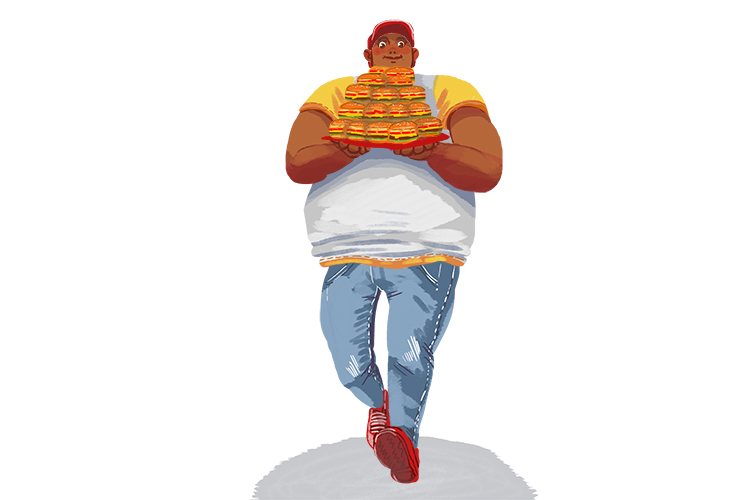Gettysburg – American civil war battle in and around the town of Gettysburg that had the largest number of casualties in the entire war. The union army defeated the confederates
(Pronounced get-eez-burg)

Getting his burgers (Gettysburg), he bought the largest number he could get on the tray (largest number of casualties).
The Battle of Gettysburg was fought at the crossroads town of Gettysburg, Pennsylvania, from July 1 to 3, 1863. The Southern (Confederate) forces were defeated by the Union (Northern) armies.
The battle is considered by many to have been the most important engagement of the entire civil war. It was certainly the biggest.
Confederate commander Robert E. Lee and his army were feeling confident following their recent great victory over Union forces at Chancellorsville, Virginia. Lee decided to invade the North in the hope of inflicting further damage on the enemy and perhaps persuading European countries to recognise the Confederacy as a genuine government.
On July 1, 1863, the advancing Confederates clashed with Union forces at Gettysburg. The following day brought heavier fighting and on July 3, Lee ordered an attack on the Union forces' centre at Cemetery Ridge.
This attack pierced the Union's line but eventually failed, with the loss of thousands of Confederate troops.
On July 4, Robert E. Lee was forced to withdraw his troops back towards Virginia. The Union armies had won a major victory. Historians attribute the Confederate defeat at least in part to Lee's overconfidence in his troops.
Losses in The Battle of Gettysburg were the war's heaviest. Of the 94,000 Union troops who took part, there were around 23,000 casualties including more than 3,100 killed. Of the 71,000 Confederate troops, there were about 28,000 casualties including around 3,900 killed. In total, Lee lost about a third of his army in this one battle.
In November 1863, President Abraham Lincoln made his famous Gettysburg Address at the dedication of a new Soldiers' National Cemetery at the site of the battle. The battlefield became a national military park in 1895 and responsibility for it passed to the America's National Park Service in 1933.
Interesting fact: In the Southern states, the immediate reaction to the outcome of the battle was that Gettysburg was a setback, not a disaster. However, many historians think that it was a pivotal battle that marked the beginning of the end for the Confederates.




